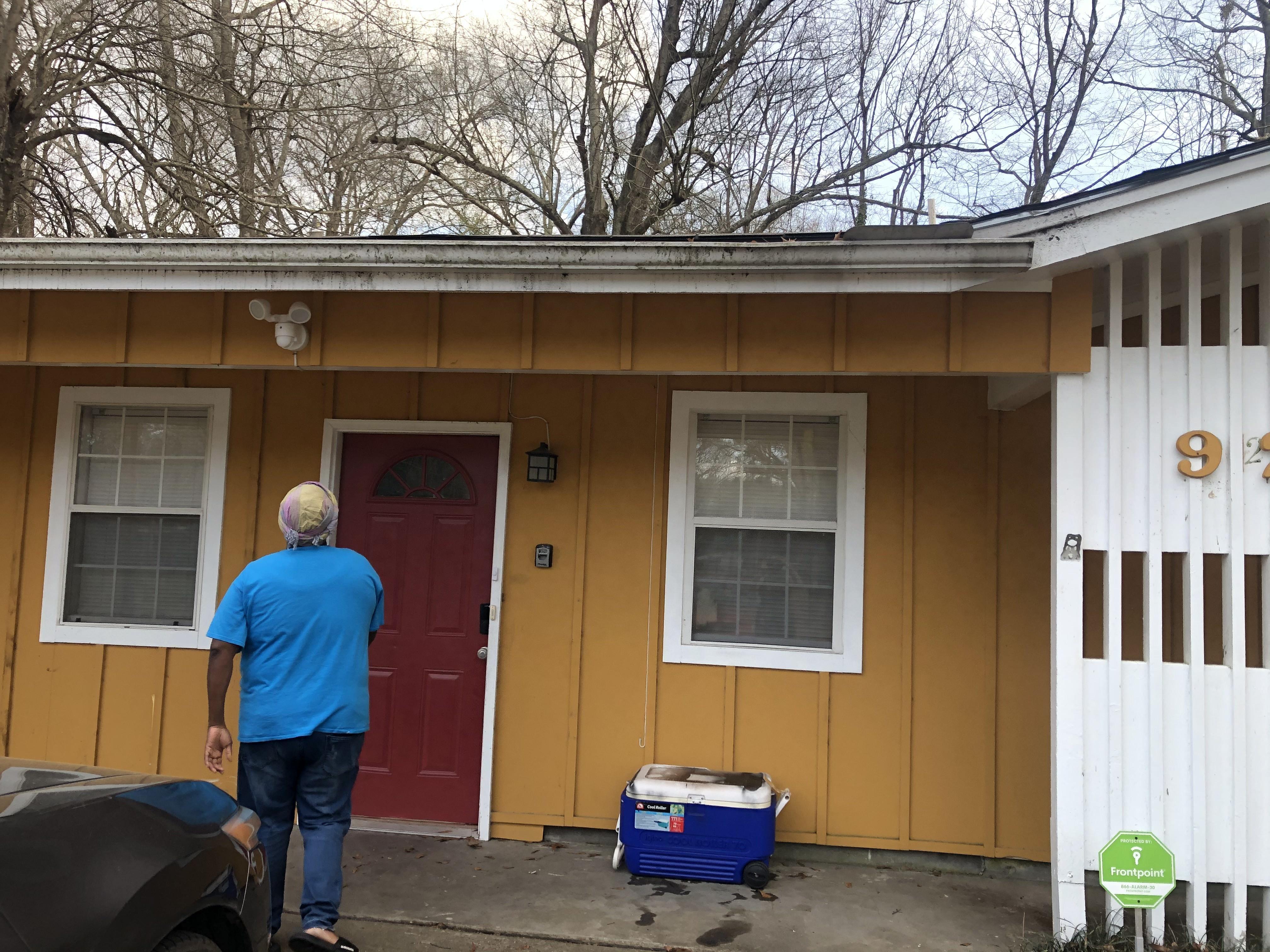Hundreds in Jackson still without running water due to February winter storm


Audio station
Hundreds of Mississippi residents are entering week four of a water crisis. The majority-Black capital city has suffered the most following February’s winter storm. Some people have no water at all, and those who do, can’t trust it and must boil it first.
Marion Roberts went nearly a month without running water. For weeks, she kept her faucets open hoping to hear the sound of water flowing. She lives with her three adult children.
The winter storm system that ravaged Texas, causing millions of people there to lose power and water also hit Mississippi, freezing pipes and breaking decades-old water mains. Roberts has been trying to pick up water from city distribution sites or buy it at grocery stores so her family can try to have some sense of normalcy.
“So, I've been trying to, like, keep up with it. You take baths with it, we take like four bottles of water take a bath,” she said. “Yeah. And we brush our teeth is one bottle. We're still not able to wash dishes.”
All those mundane and routine tasks people take for granted, require more time and effort for the nearly 500 homes and businesses in Jackson that still have no water. Even flushing her toilet requires her to fill it up each time. So, Roberts now has a new daily routine.
“I start going through the process of getting everything together. Like these bottles are empty, as you can see the empty bottle right there. We start loading stuff up in the trunk. I had a water cooler and we just fill it up the water and then bring it back to the house,” she said. “I would do that probably I was doing it twice a day. Now I'm down to only once today. So like tomorrow, if I need some more water, I'll go back, fill up.”
Roberts’ 20-year-old daughter Melody hasn’t had a proper shower at home for weeks. Every day when she goes to college, she worries about what other people think.
“It don’t make me feel so confident, as much as I am,” she said. “Because I’m like, what if like, I cleaned myself but what if I have a smell to me because I don’t have water at home.”
Her mother, Marion cares deeply for her city. Seeing the people of Jackson go without water for so long is maddening. Especially when it feels like people outside the state have forgotten about Mississippians who are suffering.
“I feel like the help has lessened. You don’t see the National Guard out here anymore. Everybody’s gone, and it’s like forget them,” she said. “I feel like it’s because the color of my skin and I hate that.”
South Jackson, where the Roberts’ live, has been hit especially hard by the water crisis. Jackson’s population is about 80 percent Black and has long had trouble getting the attention and financial help it needs. Mayor Chokwe Antar Lumumba doesn’t deny how racism has factored into the city’s underfunded infrastructure.
“I think that if we're honest with ourselves, we have to recognize the role that that plays often where we're a bit skittish of having those conversations. But we have to realize that the issues of race are as American as apple pie.”
Lumumba said the city has known it’s needed to rebuild its infrastructure for years. In 2010 another big freeze did even more damage than this winter storm. The mayor said Jackson needs help, and it’s going to take state or federal funding to secure safe drinking water.
“We should love Jackson enough. We should love the state of Mississippi enough. We should love the country enough to correct it and to recognize where we have failed and build just city models, models which lift up the inherent dignity in every person,” he said.
Lumumba said the greatest asset Jackson has is its people and their loyalty to their city. Families like the Roberts want to stay but are asking themselves if the city is willing to do what it takes to keep them.
“I mean, I love the city of Jackson, I love Mississippi. I was raised here. But if I had a choice, to be honest. If I could get up and move. Like if someone told me you can move anywhere, I would move,” she said.
Roberts’ family finally heard the hopeful sound of running water in their faucets on Friday. There are still many people in Jackson who have little to no water and nearly 43,000 households under a boil water advisory.